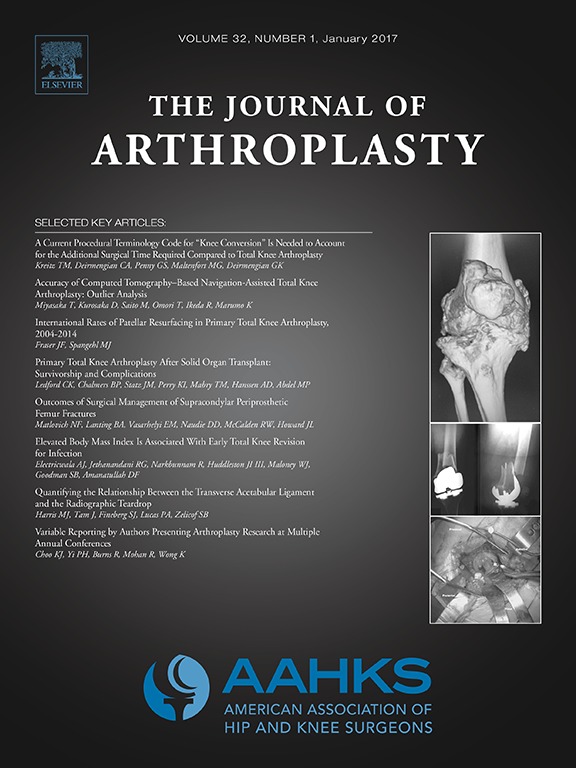
ARTHROPLASTY
Similar outcomes between fixed & mobile bearing TKA at 5 years, regardless of insert type
J Arthroplasty. 2015 Nov;30(11):1931-7237 patients undergoing cemented total knee arthroplasty for knee osteoarthritis were randomized to one of four Genesis II prosthesis variations: fixed bearing with either a normal dish or deep dish insert, or mobile bearing with either a rotating or rotating/translating insert. The purpose of the study was to determine the clinical and functional differences between the two bearings up to 5 years after surgery and to evaluate the effects of the various insert types. Results demonstrated no significant differences between mobile or fixed bearing TKA in terms of knee scores, function scores, gait parameters, quality of life, revisions or manipulations over 5 years. Survival with respect to revision demonstrated a trend towards better outcomes for the fixed bearing TKA group, and insert types were insignificantly different for all outcomes, with the exception of function scores favoring the rotating/translating insert in the mobile bearing group.
Unlock the full ACE Report
You have access to {0} free articles per month.Click below to unlock and view this {1}
Unlock NowCritical appraisals of the latest, high-impact randomized controlled trials and systematic reviews in orthopaedics
Access to OrthoEvidence podcast content, including collaborations with the Journal of Bone and Joint Surgery, interviews with internationally recognized surgeons, and roundtable discussions on orthopaedic news and topics
Subscription to The Pulse, a twice-weekly evidence-based newsletter designed to help you make better clinical decisions
Exclusive access to original content articles, including in-house systematic reviews, and articles on health research methods and hot orthopaedic topics
Or upgrade today and gain access to all OrthoEvidence content for just $1.99 per week.
Already have an account? Log in


Subscribe to "The Pulse"
Evidence-Based Orthopaedics direct to your inbox.
{0} of {1} free articles
Become an OrthoEvidence Premium Member. Expand your perspective with high-quality evidence.
Upgrade Now












































































